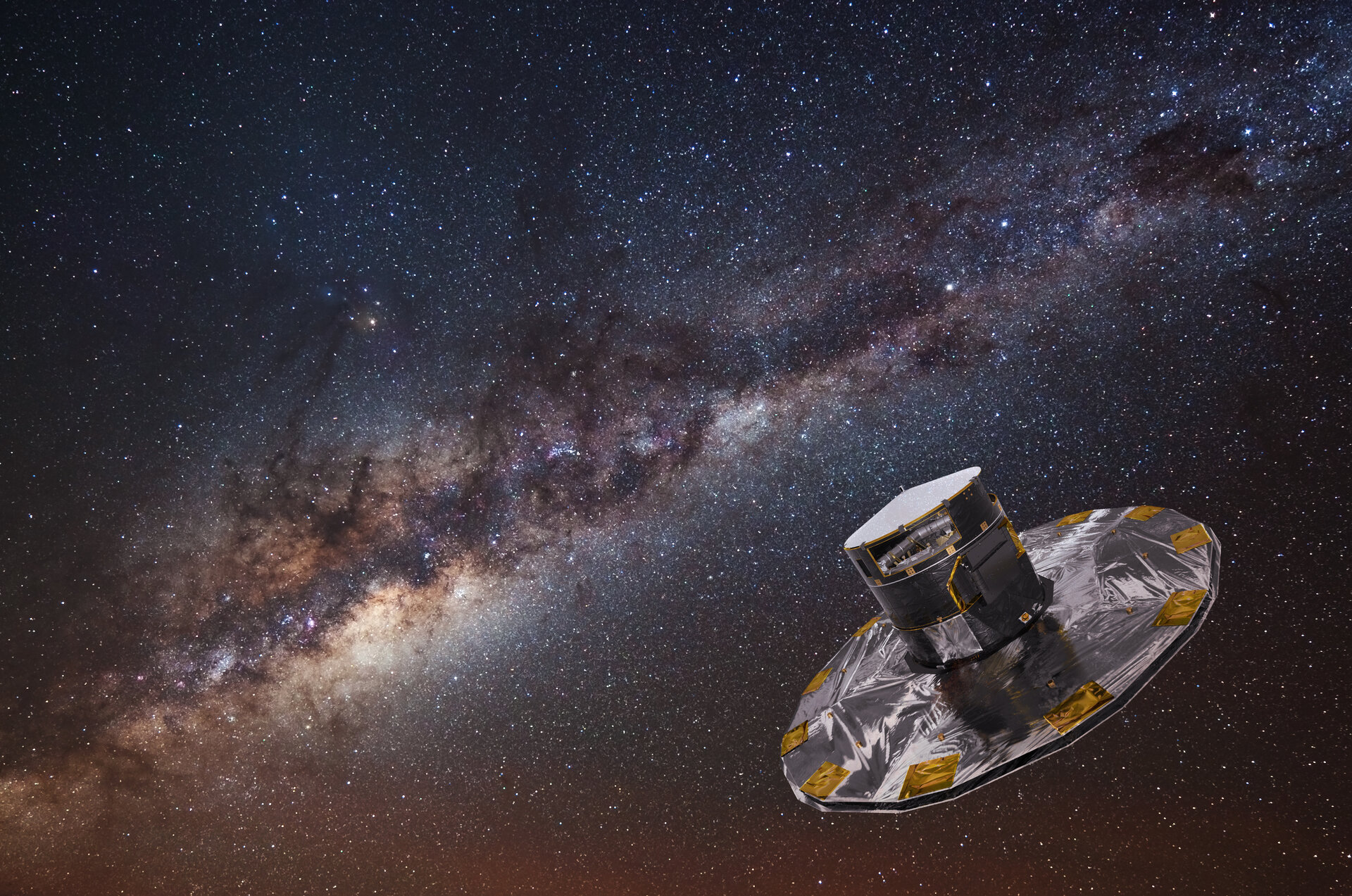ESA Gaia Science Community - Gaia (original) (raw)
Gaia news & highlights
Pre-release of Gaia DR4 astrometric parameters for a star to be occulted by Uranus
4 November 2024On 12 November 2024 the star Gaia DR3 56716009513720320 will be occulted by the Solar System planet Uranus, which offers a rare opportunity to study the ring system and atmosphere of the planet. To allow for the best-possible planning for the ground-based occultation observing campaigns, we make the preliminary Gaia Data Release 4 (Gaia DR4)...
2024-10-20 New release of Gaia Sky
20 October 2024On 17 October 2024, Gaia Sky released a new version. The software is open-source and can be used to visualise Gaia data and can be found from the University of Heidelberg website.
2024-10-03 Gaia's end of observations coming up
3 October 2024The Gaia spacecraft relies on a cold gas propellant to keep it spinning and scanning the sky. The amount of remaining cold gas decreases by about a dozen grams per day and is reaching its end in early 2025. The Gaia science observations will therefore end on 15 January 2025, meaning that no more nominal science data will be acquired by Gaia...
2024-09-11 Opening for a Gaia science operations scientist
11 September 2024Today a job opening has been posted for a Gaia science operations scientist on the ESA Careers website. The deadline for applications is 2 October. As a Science Operations Scientist, you will be initially assigned to the Gaia mission, under the direct responsibility of the Mission Manager in the Mission Management and Science Operations Division...
2024-08-27 ESA Science Research Fellowships open for submissions
27 August 2024ESA's postdoctoral Research Fellowship programme offers early-career scientists and engineers the possibility to carry out research in a variety of disciplines related to Space Science, Space Applications or Space Technology. The call for applications is now open, with a deadline of 16 September. More information on the Research Fellowship...
2024-08-08 Gaia spots possible moons around hundreds of asteroids
8 August 2024ESA’s star-surveying Gaia mission has again proven to be a formidable asteroid explorer, spotting potential moons around more than 350 asteroids not known to have a companion. Previously, Gaia had explored asteroids known to have moons — so-called ‘binary asteroids’ — and confirmed that the telltale signs of these tiny moons show up in the...
2024-07-25 10 years of Gaia science operations
25 July 2024Today Gaia celebrates 10 years of science operations. We show some impressive numbers on the current status of the Gaia mission. Since the start of Gaia's science operations phase on 25 July 2014, Gaia has scanned across more than 256 billion objects. The typical star flow in the focal plane is about 3400 stars per second. It is good to realize...
2024-07-23 How binary stars change their stellar dance with age
23 July 2024A study led by Beck et al. (2024), recently published in A&A, exploited the Gaia DR3 binary catalogue (Gaia Collaboration, Arenou et al. 2023) and the NASA Kepler and TESS catalogues of 35,000 solar-like oscillators (Yu et al. 2018, Mackereth et al. 2021, Mathur et al. 2022) to identify stars in these systems that represent the present and the...
2024-07-17 Double trouble: Gaia hit by micrometeoroid and solar storm
17 July 2024Launched in December 2013, ESA’s Gaia spacecraft is on a mission to map the locations and motions of more than a billion stars in the Milky Way with extreme precision. But it’s not easy being a satellite: space is a dangerous place. In recent months, hyper-velocity space dust and the strongest solar storm in 20 years have threatened Gaia’s...
2024-07-16 15th Gaia Science Alerts and ORP Time-Domain workshop
16 July 2024From 30 September to 2 October 2024, the 15th Gaia Science Alerts and ORP Time-Domain workshop (https://bit.ly/gaiaalerts2024) will take place in Heraklion, Crete. The Gaia Photometric Science Alerts now exist for 10 years. Immediately following the initial data processing and alert identification, any interesting brightening or dimming of...
2024-07-10 Presentations of Gaia Symposium at EAS available now
10 July 2024Last week the annual meeting of the European Astronomical Society was held in Italy. The symposium "Gaia: The (TWO) Billion Star Galaxy Census: from the Solar System to our Milky Way and beyond" was well received and contained many interesting talks. The presentation slides of the talks, as well as links to the posters, are now available from...










